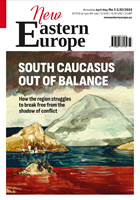
Through empathy you also become a witness
Interview with Marianna Kiyanovska, Ukrainian poet and translator, by Kinga Anna Gajda and Iwona Reichardt.
More...We kindly inform you that, as long as the subject affiliation of our 300.000+ articles is in progress, you might get unsufficient or no results on your third level or second level search. In this case, please broaden your search criteria.

Interview with Marianna Kiyanovska, Ukrainian poet and translator, by Kinga Anna Gajda and Iwona Reichardt.
More...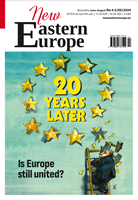
The war in Ukraine serves as a stark reminder of the diverging approaches to establishing red lines in the realm of cyber operations, accentuating the complexities inherent in establishing normative frameworks for governing cyberspace. The intersection of cyber warfare with traditional kinetic conflict further exacerbates the complexities of norm development, underlining the urgent need for sustained efforts to bridge gaps and address grey areas in international law.
More...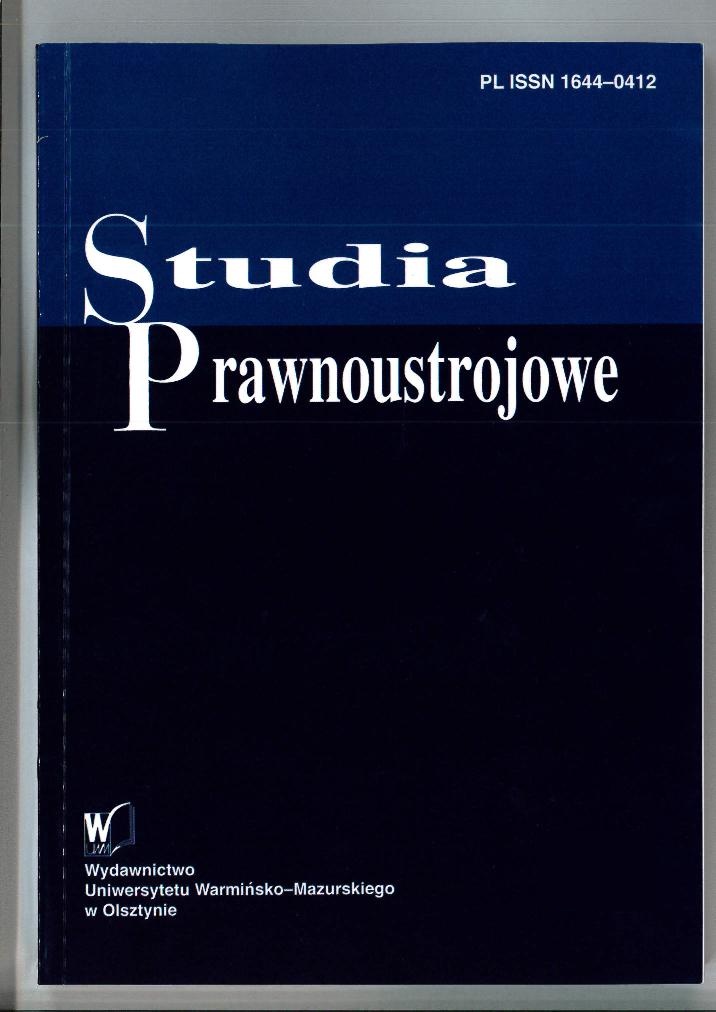
In recent decades, some post-communist countries of Central and Eastern Europe, have founded institutions that should undertake historical policy, archive documents, and popularise knowledge about the repressions that took place in the 20th century. Among these countries is Ukraine, where the Ukrainian Institute of National Memory started to operate in 2006. The following article aims to analyse its legal situation and the evolution of the scope of the activities. The paper is based on all the most important legal acts related to the Ukrainian Institute of National Memory. The paper argues that of crucial importance is the fact that the Institute operates within the structures of the Executive Power. Such a situation not only limits its capacities but also makes its activities dependent on the current government’s policy. Subordination to the Minister of Culture overwhelmingly determines the nature of the Institute’s activities.
More...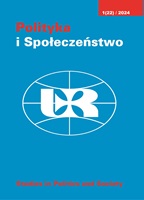
The article describes the contemporary mechanisms of shaping social awareness in the initial phase of an armed conflict. The analysis has been narrowed down to one of the critical areas of influence on public awareness, i.e., the impact through the mass media – particularly the Internet. As a case study, the activities related to the armed conflict between the Russian Federation and Ukraine were utilized, and the observed population consisted of Internet users in the Republic of Poland. The results were based on publicly available data from the Google Trends tool. In addition, the keywords entered into this database were predefined with the assistance of artificial intelligence tools embedded in Chat GPT-4 algorithms. The result of this analysis demonstrates the high resilience of the social awareness of Poles to the attempt to change its positive attitude towards humanitarian and military aid for fighting Ukraine in the first days of the Russian invasion in February 2022.
More...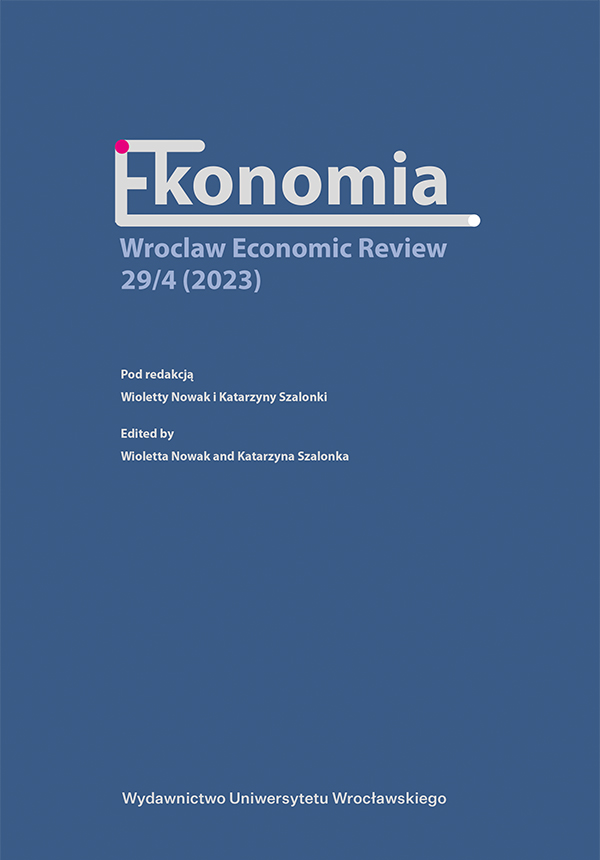
The new geopolitical situation connected Russia’s invasion of Ukraine has put the Polish healthcare system in front of a huge challenge and the necessity to quickly take and implement strategic decisions aimed at providing the best possible healthcare for refugees without harming the Polish society. Objective: The main objective of the article is to present selected challenges of public health resulting from the infl ux of refugees to Poland. Materials and methods: the research part used a review of the current Polish literature containing information on the infl ux of refugees to Poland, Google Scholar, and PubMed scientifi c databases, as well as statistical data from the Central Statistical Offi ce (CSO). Results: public health, despite many diffi culties related to the lack of medical documentation, the threat to the health security of the Polish population, the excessive burden on the state budget, and problems with the implementation of Ukrainian specialists, developed and consistently implemented health strategies with the involvement of private health care. The reforms implemented by the Polish government, aimed at adapting to the new reality, have contributed to the provision of the necessary and specialized health services for refugees, without adversely aff ecting access to medical care for Polish citizens. Conclusions: The changes introduced by the Polish government, which contributed to the adaptation of the healthcare system to new challenges, such as providing support to refugees, were analyzed. The results of the analysis show that these modifi cations made it possible to provide the necessary and specialized health services for this group, without aff ecting the accessibility of healthcare for Polish citizens. The study suggests that such an approach can provide an eff ective model for adapting to contemporary migration challenges while meeting the needs of refugees and ensuring access to healthcare for the local community
More...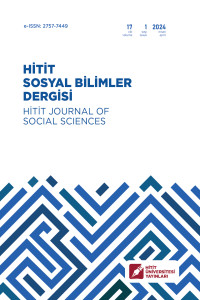
Russia recognized the independence of Donetsk and Luhansk regions on February 21, 2022. Three days later, following Putin's speech on Russian state television 'on the conduct of a special military operation', Russian troops invaded Ukrainian territory on February 24, 2022. The response of the developed economies has been the rapid imposition of economic and financial sanctions against Russia. After the sanctions were imposed in the immediate aftermath of the Russian invasion, the Russian ruble depreciated by 20.7% against the US dollar in a single trading day (February 28, 2022). Besides, the Russia-Ukraine war also affected the supply of crude oil, the world's most traded and utilized commodity. Crude oil has economic importance and a constant link to many other financial and commodity markets. The war therefore had a global impact on financial markets and investor behavior, even though it directly involved only two countries. This study examines the effect of the Russia-Ukraine war on the stock returns of companies listed in the BIST electricity index. It is aimed to contribute to the empirical findings on the investor reaction to the fluctuations in global markets on February 24, 2022, when Russia announced that it had launched a military operation against Ukraine. There are numerous empirical findings in the literature that negative cumulative abnormal returns have been observed in global stock markets since the beginning of the Russia-Ukraine war. From this point of view, this study aims to determine the impact of the Russian-Ukrainian war on the stock returns of BIST electricity index companies that are most related to energy production and consumption. The empirical analysis of the study is based on the event study method used to analyze the impact of sudden events on the stock market. Normal returns are calculated using data from the forecast window. Among all models, the Ordinary Least Squares (OLS) market model gives the most superior results for an event study analysis. To measure investors' reaction to the event, we calculate the daily abnormal return (AR) for each day in the event window and then the cumulative abnormal return (CAR) for each day in the event window by summing these returns. AR is defined as the difference between the actual return of the security on a given day and the expected return predicted by any forecasting model. In the study, average abnormal returns (AAR) are calculated 10 days before and 10 days after the event (-10, +10) to observe the pre-event and post-event investor reaction. In the second stage, cumulative average abnormal returns (CAAR) were calculated in seven different windows (-1,+1), (-2,+2), (-3,+3), (-4,+4), (-5,+5), (-6,+6) and (-7,+7). Statistical significance of all CAAR and AAR values are tested with both parametric and non-parametric tests. Accordingly, on the event day of February 24, 2022 (0 AAR window), investors had a strong negative return of approximately 5% compared to the benchmark index, the BIST 100 index. Energy companies were found to have negative CAARs in all event windows in the second phase. Within these windows, the highest negative CAAR value compared to the BIST 100 was realized at -5.5% in the event window (- 3,+3). It is thought that this situation may have resulted from the panic selling of the investors. The findings show that the stocks of BIST energy companies faced statistically significant negative returns in the face of the outbreak of the Russia-Ukraine war. It is thought that this situation may be due to the investors' directing their investments to markets that are expected to be less affected by the war, or to other sectors due to the uncertainty in the energy sector.
More...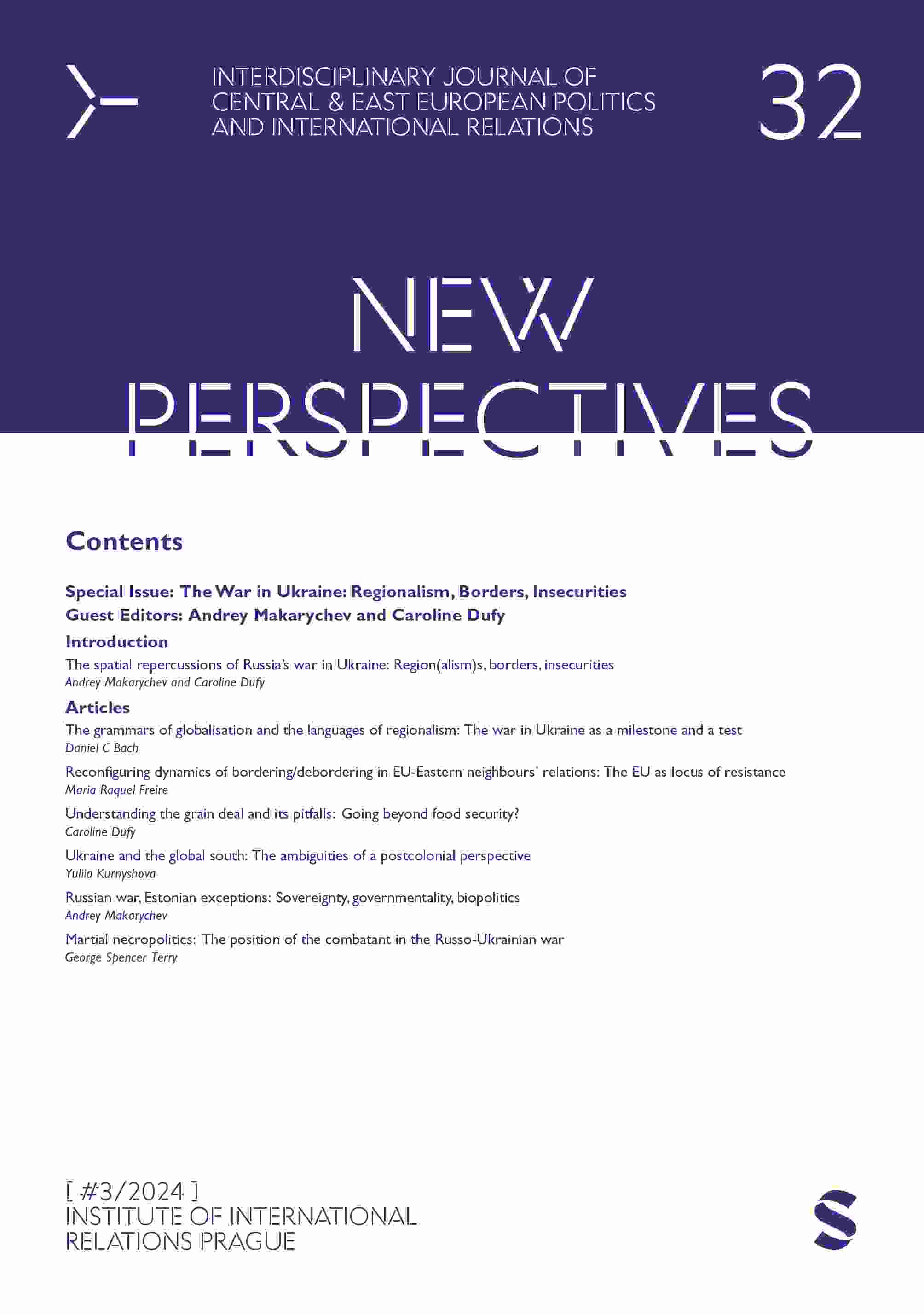
The author analyzes Estonia as a case study to explore two interrelated research questions – how exceptions are produced and reversed through the mechanisms of sovereignty and governmentality projected onto geo- and biopolitical domains, and how the new practices of exceptionalization and de-exceptionalization contribute to the emergence of a new spatial order at Europe’s eastern margins? Three types of policies unfolded in Estonia as reactions to the Russian war against Ukraine are identified. First, the Estonian government introduced extraordinary measures based on the logic of national interests, which left much space for discretionary power to define risks, threats, and dangers. Secondly, some policy domains were intentionally de-exceptionalized for the sake of their better integration into Estonian normative space and as a reaction to the effects of the war. Third, in some cases there were exceptions from exceptions, which meant certain steps back toward normalization of the previously taken exceptional measures. The theoretical frame of the article consists of two nodal concepts – sovereignty and governmentality to be projected onto geo- and biopolitics treated as spheres in which sovereign and governmental powers operate and expose their political qualities.
More...
The Russo-Ukrainian War has produced a myriad of necropolitical discourses regarding the justification of death and the subjugation of lives to potential death. Contemporary necropolitical scholarship has primarily focused on the civilian, subaltern dimension of this paradigm in a wider context, yet in this war, combatants from the opposing armed forces are the individuals most consistently embedded in these conditions of potential death. How, then, is the potential death of the combatant justified and legitimized? Through a critical engagement with the concept of the border as the front, this article will explore how the subjugation of Ukrainian and Russian combatants to the conditions of potential death is discursively justified through a framework of the necropolitical logics of survival and martyrdom. Through these logics, two competing necropolitical regimes of truth have arisen, nevertheless leading to the same conclusion – the mobilized bodies of the combatants at the front – yet promising different versions of a life beyond death itself.
More...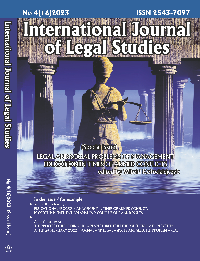
The paper presents a theoretical and applied approach to the organisational, legal and man-agerial mechanisms through which the process of relocation of Ukrainian universities under the conditions of martial law in Ukraine was carried out, referring to the examples of the relocated Kherson National University and the Vasyl Stefanyk National Precarpathian Kherson University serving as a relocation base. It also takes a closer look at the manner of organising the educational process at these universities in the time of war. The authors of the paper indicate the following areas that were of priority importance for the Kherson National University in the time of war: safety of all participants in the educa-tional process; organisation of a high-quality educational process in the prevailing circum-stances; organisation of management taking into account the relocation processes; im-provement of digital infrastructure; organising the operation of the volunteer and psycho-logical support centre at the university; strengthening of the international cooperation at all possible levels; scientific development; image-building activities, communication with central and local authorities, organisation of the recruitment campaign. The main tools by means of which the digitisation of the educational process at Kherson National University is being carried out include the remote learning systems, in particular the “KSU online”, the official website and the websites of the organisational units, personal data, draft docu-ments, software and other digital resources of higher education institutions. It is indicated that the positive experiences related to the organisation of the educational process in the time of war by the Vasyl Stefanyk National Precarpathian Kherson University include: 1) the successful relocation of the Kherson National University onto the material and tech-nical base of the Precarpathian Kherson University; 2) preservation of the integrity of the contingent of students, research, teaching and administrative staff of the university; 3) maintaining the regularity of the educational process in the time of war; 4) ensuring safe conditions for the educational process; 6) keeping the high quality of educational services under martial law; 7) intensifying the digitisation processes of educational services at the university. The emphasis was put on the importance of combining asynchronous and synchronous learning formats to maintain the quality of the educational process under the conditions of war in Ukraine, especially in the first stages of the full-scale invasion. It is being stressed that the problems and challenges resulting from war, as described here-in, were overcome by both universities so they were able to fulfil the tasks placed upon them.
More...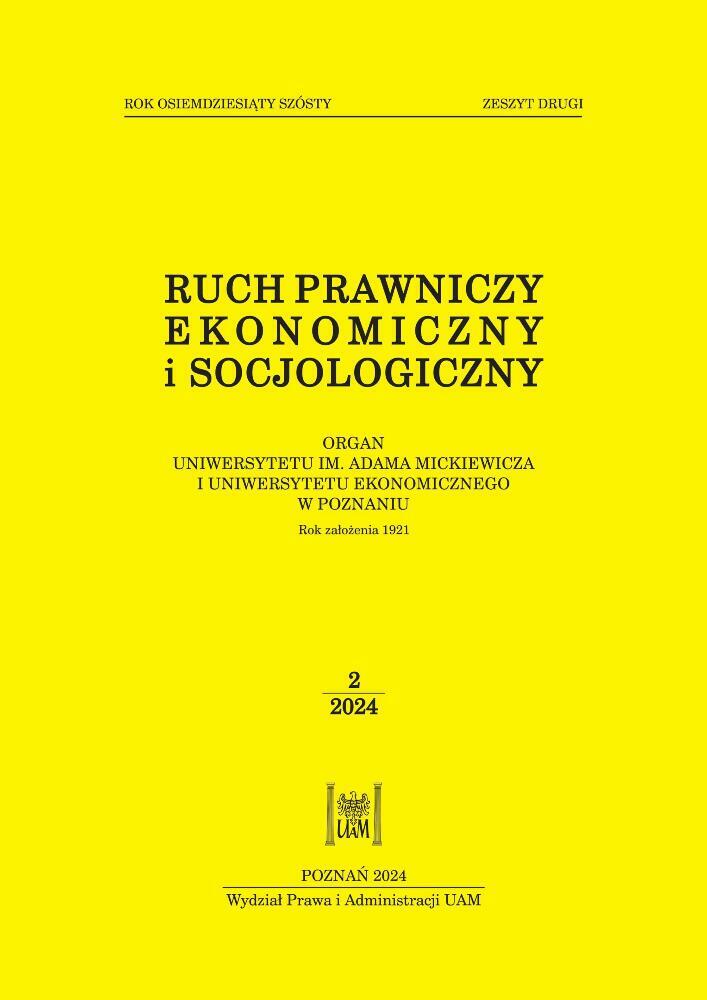
The Russian invasion of Ukraine was the first open and blatant aggression against a sovereign neighbour state in Europe since 1945. Does this war have systemic significance for the legal order as a whole? The contribution singles out legal trends that relate to three fundamental principles of the current international legal order: peace, people (humanity), and the planet. My thesis is that, although Russia has breached a fundamental, even constitutional, principle of international law, namely the prohibition of inter-state military force, this breach has productively – though unintentionally – boosted, firstly, a modest reform of the UN architecture and, secondly, a further humanization of international law. A third trend is the ‘greening’ of the law surrounding war and of the legal status of the individual. These are important positive developments that go to the very heart of international law. With some optimism, the ‘Ukraine moment’ can therefore be seen not only as an anti-constitutional, but at the same time also as a constitutional moment.
More...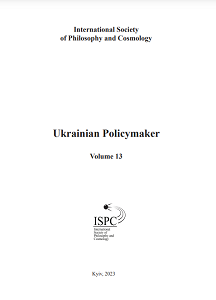
From October 7, 2023, the Palestinian-Israeli conflict has escalated again, which has aroused great concern all over the world. However, the conflict is not limited to the Middle East, it also has an extensive and far-reaching impact on the attitude of the United States and Western countries on the issue of Ukraine. This article will explore the position and attitude of the Palestinian-Israeli conflict to the United States and Western countries on the issue of Ukraine and how to find a balance between the two issues. By analyzing these changes, we can better understand the evolution of the global situation and the choices made by countries in the face of complex international relations.
More...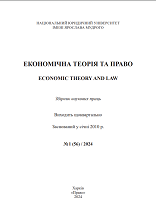
This article analyzes the human resources peculiarities in Ukraine’s IT industry related to age, gender, educational characteristics, legal forms of employment, and income. The study results of the influence of martial law conditions on the competitiveness of Ukraine’s IT industry’s human capital are given. The authors conclude that the competitiveness of human resources in Ukraine’s IT industry is linked to the retention of its talents, client trust, geographical expansion of IT services markets, diversification of activities, increased orders to ensure Ukraine’s defense capability and its victory in the war with russia.
More...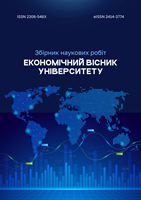
The full-scale invasion of Ukraine by Russian troops on 24 February 2022 led to significant changes in the Ukrainian labour market, which require a detailed analysis and understanding of their further dynamics. The purpose of this paper is to find out how the changes in the demographic structure of the national labour market have affected Ukraine’s macroeconomic indicators. Using such methods as statistical analysis, comparison, synthesis and forecasting, the study of current demographic and economic indicators was conducted. The study obtained and analysed statistics on the forced displacement of refugees both within Ukraine and abroad, taking into account age, gender, education and other demographic indicators – at least 12 million Ukrainian citizens were relocated, 75% of whom are able-bodied and more than half of whom have high professional qualifications. Separately, information on young people and students who continue or start studying abroad was studied and conclusions were drawn on their assimilation in the new society and the likelihood of their return to Ukraine. In the process of analysing the conditions for the growth of unemployment, the number of enterprises that ceased operations due to hostilities or temporary occupation was calculated – both geographically, by region, and by type of ownership. It turned out that in eastern Ukraine, the number of closed business entities reaches 80%, and almost a third of individual entrepreneurs have ceased their activities. The study also forecasts the conditions for post-war reconstruction of Ukraine, taking into account the fate of returning refugees and the country’s prospects for joining the European Union. The practical significance of this study is to assess the impact of changes in the structure of the labour market on the Ukrainian economy. The results may be useful for government agencies that are already formulating a strategy for Ukraine’s post-war recovery.
More...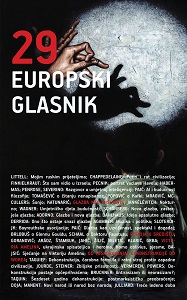
Premda je htio voditi svjetske poslove zajedno sa Sjedinjenim Državama, Putin sada definira Rusiju kao državu-civilizaciju, nastojeći zavojačiti zemlje Juga za svoj rat protiv Zapada. Kako bi opravdao raskid sa Zapadom i sve oštriju unutrašnju represiju, Vladimir Putin u govoru na klubu Valdaj 5. listopada 2023. razvija ideju da Rusija nije država-nacija nego »država-civilizacija«. Okrivljujući Sjedinjene Države i njihove europske saveznike za rat u Ukrajini, za dramatična zbivanja na Bliskom istoku i za antisemitske napade u Dagestanu, ruski predsjednik razvija jednu priču koja je daleko od stvarnosti i šteti suvislosti njegove zemlje.
More...
»Ukrajina je borba demokracije protiv autoritarnog režima. Po Putinu, međunarodne institucije i međunarodno pravo nisu bitni, nego je bitna jedino moć. Zaustavljanje ruske agresije na Ukrajinu vraća vjeru u međunarodno pravo i Europu,« govorila je Viktorija Amelina.
More...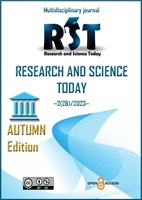
THIS PAPER CRITICALLY EXAMINES THE MULTIFACETED IMPLICATIONS OF RUSSIA'S AGGRESSION TOWARDS UKRAINE POST-FEBRUARY 2, 2022, ON EUROPEAN BORDER DYNAMICS. THE PAPERS BRINGS TO OUR ATTENTION THE ROMANIA-UKRAINE BORDER INTERACTIONS. BEGINNING WITH A HISTORICAL CONTEXTUALIZATION, THE STUDY EXPLORES UKRAINE'S EVOLVING TIES WITH EUROPEAN ENTITIES IN LIGHT OF RUSSIA'S ANNEXATION OF CRIMEA. FOCUSING ON THE ROMANIA-UKRAINE FRONTIER, AN ESSENTIAL PART OF THE EU'S EASTERN BORDER, THIS PAPER HIGHLIGHTS ITS SHIFT FROM A RESTRICTIVE BOUNDARY TO A BUSY TRADE HUB, FACILITATED BY EUROPEAN LEGISLATION AND UKRAINE'S GROWING ECONOMY. FURTHERMORE, IT ASSESSES THE EUROPEAN UNION'S ADJUSTMENT OF BORDER SECURITY MEASURES IN RESPONSE TO THE UKRAINIAN REFUGEE CRISIS, PRIORITIZING HUMANITARIAN AID OVER STRICT CONTROLS. THE PAPER ALSO POINTS OUT THE CRUCIAL ROLE OF CIVIL SOCIETIES IN AIDING REFUGEES. IN CONCLUSION, WHILE ADDRESSING THE CHALLENGES CAUSED BY RUSSIAN ACTIONS, THE PAPER IDENTIFIES A POSITIVE OUTCOME: ENHANCED COOPERATION BETWEEN ROMANIA AND UKRAINE. THE ARTICLE ADVOCATES FOR ONGOING SUPPORT FOR UKRAINE'S EUROPEAN AMBITIONS AND PROMOTES INCREASED CROSS-BORDER COLLABORATIONS TO FOSTER REGIONAL PEACE AND PROSPERITY.
More...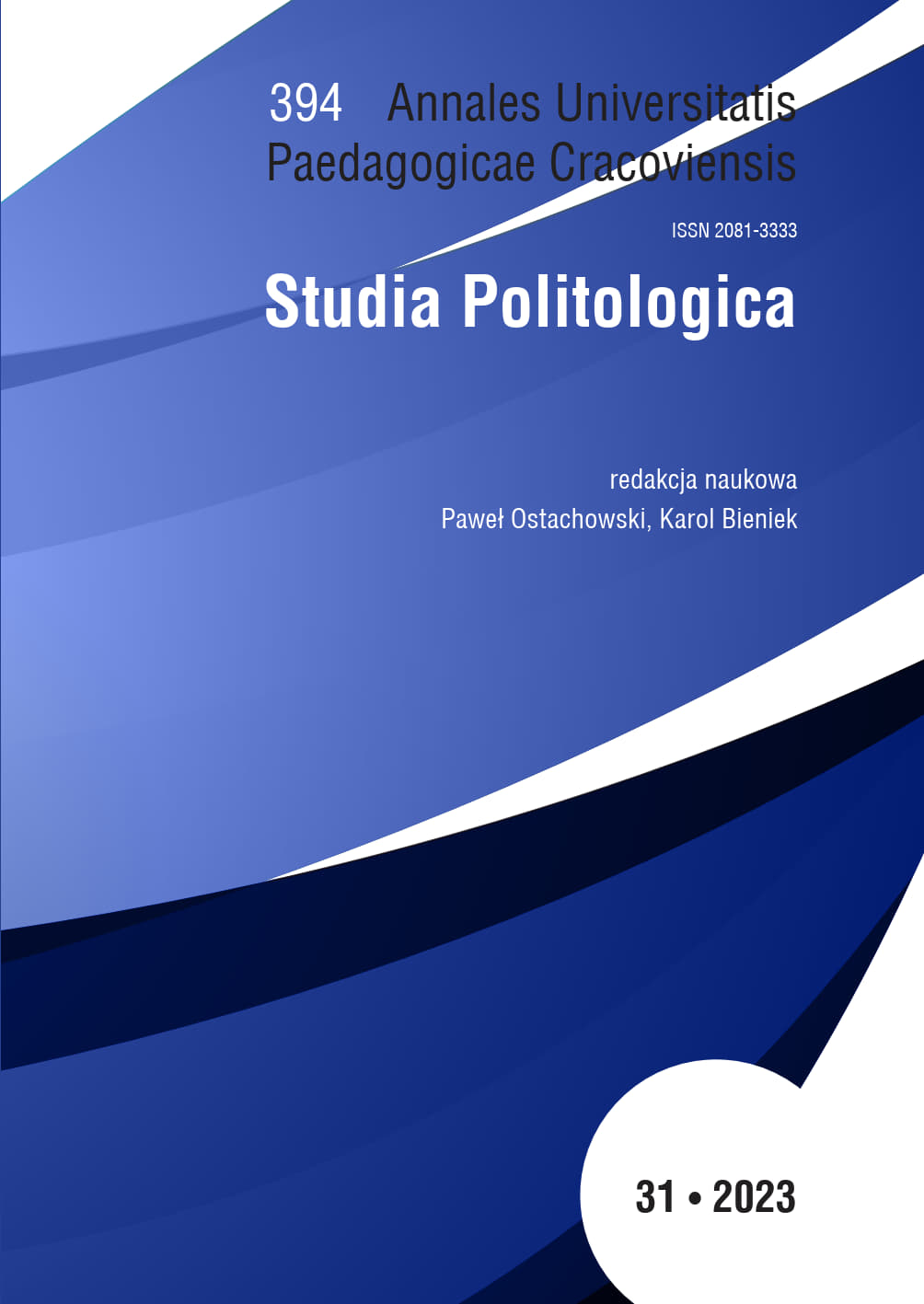
The LPG market in Poland is one of the largest in the European Union. It is also the most de‑veloping market for liquid fuels in the country, which is the result of both attractive prices ofthis fuel for retail consumers and the growing base of applications of this raw material in otherareas of the economy. However, the security of LPG supplies to the Polish market has beenchanged by the Russian Federation’s aggression against Ukraine, which began in February 2022.The article looks at this problem, trying to assess whether the actions taken by the governmentin this area have secured the Polish LPG market sufficiently against a possible suspension ofLPG imports from the Russian Federation. The main hypothesis of the work in this case is theclaim that the actions of the Polish authorities in this regard from March 2022 to October 2023remain insufficient, which in the event of a sudden suspension of trade in this raw materialoriginating from the Russian Federation may result in a significant disruption of the market tothe detriment of the economy and consumers. The article consists of three parts. The first oneinforms about the development of the LPG market in Poland before February 24, 2022. Secondpart of the article characterizes the approach of the Polish authorities to the diversification ofthe directions of supplies of this fuel between February 2022 and October 2023. Third partrefers to a possible scenario of limiting the supplies of this fuel from the Russian Federationas a result of it being subject to EU sanctions or a unilateral decision by the Kremlin in thismatter. In this case, theoretical and practical analyzes based on literature, official governmentannouncements, statistical data and media reports were helpful in obtaining an answer to thequestion posed in the title of the work about the safe operation of the Polish liquefied petroleumgas (LPG) market.
More...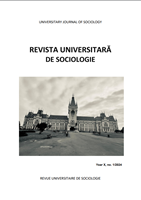
The Ukrainian refugee crisis represents an unprecedented aspect for the entire population. The specialists had to manage the situation of many refugees in 2022, and the refugees settled for an extended period in Romania. According to the research carried out in May and June 2023 by FONPC (Federation of Non-Governmental Organizations for Children), which aimed to identify the needs of Ukrainian refugees in Romania, adults and children, most of the refugees have been in Romania for over a year (42%), and for over six months 38% of respondents. Among the 1285 respondents, according to the research, 94% are female, and only 6% are male. From the data of the same study, it appears that 89% have children, 46% stating that they have 2-3 children. Among them, 67% said they care for the children alone. Thus, three-quarters of the parents with children are in a single-parent family. The specialists draw attention to the need for support that these families need.
More...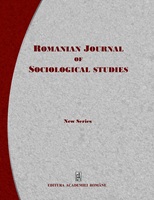
The significance of resilience within the cyber security field serves not only as an awareness tool regarding the impact of cyber-attacks on a global scale, but also as a reminder that the world we are living in is a basin of threats, mostly endorsed through cyber space. The examination of the so-called Advanced Persistent Threats (APTs) is a reminder of the mandatory existence of resilience strategies in creating high-technology defense instruments and response mechanisms. Enhancing cyber-security is a mixture of vigilance, adaptive learning, proactive measures, lessons identified and cooperation between entities that may deal with cyber adversities.
More...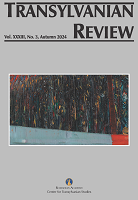
The hesitation of Western Europe and the procrastination of the Americans will permit Russia to play its aggressive game and annihilate freedom and democracy in the world. When speaking about the present-day situation in international relations, it is important to take into account the possible perverse effects of democracy. There are people who keep asking for negotiations with Russia, ignoring the fact that appeasement brings aggression, damaging Ukrainian interests and helping Putin, who could easily resume the aggression in a few years’ time, as this appeasement will convince him that the West is too weak to stop him. World War II demonstrated that the United States of America cannot isolate themselves between the two oceans in case of a World War as, against all odds, the war came to America even if the United States did not want to go to war. It is necessary for the United States to resume the aid for Ukraine, to prevent Russia from winning the war. Otherwise, the result will be a disaster for Europe, for democracy.
More...